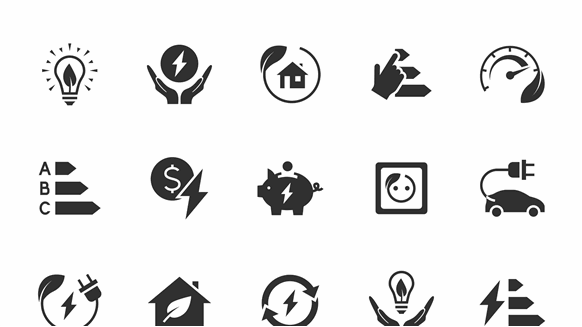USA Offers $400MM in Grants to Improve Energy Efficiency of Buildings

The USA Department of Energy (DOE) has opened applications for $400 million in grants for state governments to implement building energy codes that improve efficiency and lower emissions.
"Homes built to today’s energy codes are nearly 40 percent more efficient than homes built just 15 years ago, dramatically cutting energy costs for consumers", the DOE noted in a recent press release announcing the formula funding. "If all states updated to the latest model energy codes, over the course of 30 years, this action would save enough energy to power all households in the United States for a full year. Switching to the updated energy codes would equate to almost 2 billion metric tons of CO2 [carbon dioxide] emissions reduction, the equivalent of removing over 445 million gas powered cars from the road over the same 30 years".
The bulk of the grants, at $240 million, is for the implementation of the 2021 International Energy Conservation Code (IECC) for residential buildings and the ANSI/ASHRAE/IES Standard 90.1–2019 for commercial buildings or other codes that achieve at least equivalent energy savings. The remaining $160 million is for the implementation of IECC zero energy provisions or other codes achieving the same results.
In an earlier analysis the DOE said the adoption of the 2021 IECC results in source energy savings of 8.79 percent, site energy savings of 9.38 percent and energy cost savings of about 8.66 percent for residential buildings on a national average basis. "States can experience significant benefits by updating their codes to reflect current construction standards, a total estimated $74.61 billion in energy cost savings and 424.20 MMT [million metric tons] of avoided CO2 emissions in residential buildings (cumulative 2010 through 2040), or $3.24 billion in annual energy cost savings and 18.50 MMT in annual avoided CO2 emissions (annually by 2030)", the DOE said in the report for the analysis published July 19, 2021.
Energy Secretary Jennifer M. Granholm said in a statement about the grants, "A transition to a clean energy economy is about more than adding clean energy to the electric grid; we also need to revitalize, and fortify, the infrastructure we have now".
The DOE announcement said the funding enables states to "have support in adopting, implementing, enforcing, and measuring compliance rates of specified building energy codes, while training and educating their workforce and building localized capacity".
"These activities will improve residential and commercial new construction and major renovations, and help transition the infrastructure in these states to include more efficient, more-resilient decarbonized buildings for all", the DOE added.
States must submit a letter of intent by November 21 to be considered for the funding, according to the DOE, which administers the grants through its Office of State and Community Energy Programs.
"This program advances President Biden’s Justice40 Initiative, ensuring that 40 percent of the overall benefits of federal clean energy investments make a difference in communities that are energy burdened and disadvantaged", the DOE said. The initiative, which President Joe Biden passed January 27, 2021, aims to direct 40 percent of the benefits of certain investments, including those poured into clean energy and housing, to disadvantaged communities.
"It [the funding on offer] also aligns with President Biden’s National Initiative to Advance Building Codes, which is accelerating adoption of modern building codes that protect people from extreme-weather events and save communities an estimated $1.6 billion a year in avoided damages", the DOE added.
The DOE said it intends to offer complementary competitive funding to "provide direct support to states and local governments with code adoption authority for more innovative code approaches, including building performance standards, in the following months".
The grants are funded by the Inflation Reduction Act, which provides $1 billion for the adoption of building energy saving codes.
To contact the author, email jov.onsat@rigzone.com
WHAT DO YOU THINK?
Generated by readers, the comments included herein do not reflect the views and opinions of Rigzone. All comments are subject to editorial review. Off-topic, inappropriate or insulting comments will be removed.
- OPEC Fund Chips In for $200MM Financing for Egypt Food Security
- Chevron Australia, Striking Workers Agree to Terms Proposed by Tribunal
- UK Offshore Wind Industry Risks Cancellations: Hedge Fund Chief
- Analysts Examine USA Gas Inventory
- BP, Pertamina Eye CCUS, Blue Ammonia Projects in Indonesia
- Vietnam Upstream Sector Outlook Brightening
- Union Jack Acquires Interest in German Assets Through Beacon
- California Sues Big Oil Demanding Damages, Relief
- Oil Drops as Fed Signals Further Rate Hikes
- North America Breaks Rig Loss Streak
- Who Produced the Most Natural Gas in 2022?
- Cocaine Is Set to Overtake Oil to Become Colombia's Main Export
- Brent Oil Price Highly Likely to Move Above $100
- EIA Bumps Up USA Diesel Price Forecast
- Aramco, ExxonMobil Chiefs Insist Oil Needed in Energy Transition
- Shell, BP, Eni Accept Licenses for First Ever UK Carbon Storage Round
- Gazprom Delivers LNG to China via Arctic Route for First Time
- Saudi Crude Oil Exports Plummet
- What Would Happen to the Oil Price If OPEC+ Went into Max Production Mode?
- Oil Market is Bewildered
- Market Expert Says $100 Oil Is in Sight
- Big Tech Is Coming for Oil Patch Workers
- BMI Reveals Latest Brent Oil Price Forecasts
- For Global Oil Markets, a USA-Iran Deal Is Already Happening
- Saudi-Russia Move Can Only Result in One Thing
- BP CEO Resigns amid Probe into Relationships with Colleagues
- California Sues Big Oil Demanding Damages, Relief


